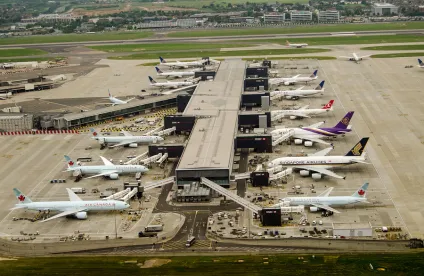On Wednesday, June 28, 2017, the U.S. Department of Homeland Security (DHS) announced that it will implement enhanced security measures for all international commercial flights coming to the United States. Approximately 325,000 passengers per day, traveling on 2,100 flights per day from 280 airports are expected to be affected by these new screenings. DHS has stated that these measures are a way to address potential security threats without having to implement a full laptop ban on all international flights.
International passengers should expect screening of electronic devices; increased security protocols around aircraft and in passenger areas; deployment of advanced technology, expanding canine screening, and establishing additional preclearance locations; as well as heightened security standards for aircraft and airports. Full details on all the new requirements have not been released by DHS due to security concerns.
Airlines and airports that fail to implement these requirements run the risk of additional security restrictions being imposed. These could include a full laptop ban, similar to that imposed in March 2017 on flights originating at ten airports in eight countries including Egypt, Jordan, Kuwait, and others. On the other hand, DHS officials have stated that the airports currently subject to the laptop ban can be removed from that list if they meet the new security requirements.
At present, there is no fixed date for the full implementation of these heightened screening measures. DHS will be working with international airlines and airports over the coming months to ensure these measures are fully implemented. Travelers should expect longer wait times to complete security screenings on international flights and plan their schedules accordingly.



 />i
/>i
